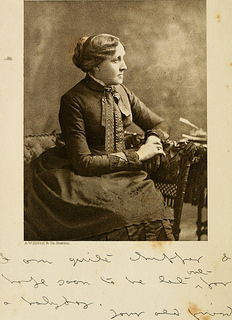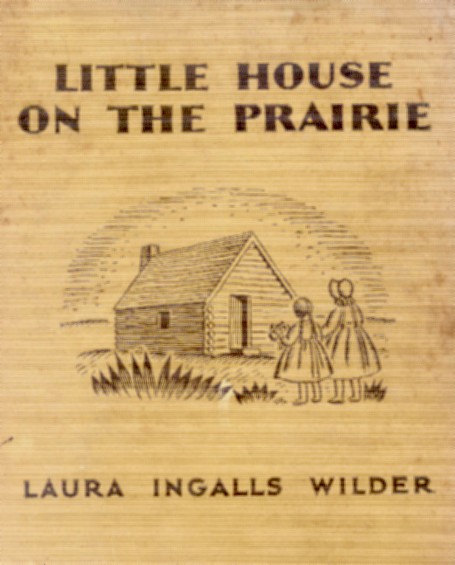Real people have inspired many a memoir and work of fiction. However, what if you hurt your loved ones’ feelings? What if they sue you or un-invite you to Thanksgiving dinner? The writer of the vampire books, Anne Rice, advises, “Go where the pain is. Go where the pleasure is.” Both can be found in families, but, also, joy, love, and memories. Our senior years often allow us the leisure to look back on our lives and think about how our families of origin, and possibly our natural families, influenced our lives, for good or ill. Many of us want to leave a record for our descendants. When I’ve taught memoir writing classes, even in small group settings, aspiring writers express great fear that they will be ostracized for putting their “truth” down on the page. How can we wade into these murky waters without risking retribution?
The Danger Zone
Louisa May Alcott is said to have advised aspiring writers to “write what you know.” We would not be able to read Little Women if she had not written what she knew.

Author Laura Ingalls Wilder drew on her family’s experiences for Little House on the Prairie.

Hemingway borrowed from his real life in Big Two-Hearted River and The Sun Also Rises. Before the current trend toward writing memoirs, Tobias Wolff wrote the autobiographical novels This Boy’s Life and Old School.

Not to put myself in the same league as the above-mentioned writers, but ditto for my novel, Montpelier Tomorrow. Most writers draw on real life events when they write fiction.
Real Life Issues Provide Plenty of Grist for a Book
If you haven’t listened to the interview I did for the “Author’s Show,” please find it in the right hand column. In the interview, I hint at the real-life issues that drove me to tell the story of a woman who didn’t want to become her son-in-law’s caregiver, but who ultimately did because she could see what her daughter was up against.
What I didn’t mention was the alchemy that happens during the creation of a work of art, the way a writer must change “what really happened” into a series of events that lead to a crisis. Nor did I have time to mention a walk-on character named Esmeralda, a teen-in-trouble who popped into my mind after I saw Girl With the Dragon Tattoo.
In my novel a bouncy blonde called “Big Bird,” aka “Big B,” and a neighbor named Lowell who grew heirloom tomatoes sprang from my imagination. The line between fact and fiction eventually blurred, a phenomenon I’ve heard other writers talk about.
When an author writes her way to the last page of her book, she knows her characters better than she knows the members of her family (even if the characters began as family). That’s because, as authors, we can render the characters’ interior monologues to heighten inner conflict. We can put words in people’s mouths. If an author is doing her job, the reader will not be able to tell the made-up characters from the real ones. What often happens is that the imagined characters are more fully realized than the “real” people who inspired the book.
Our families don’t have any idea what we do, how we do it, or why. If you’re a caregiver–especially when you’re finished with your duties and can finally reflect on them–you may feel compelled to write about what you’ve been through.
So, how can you avoid problems? Here are some general guidelines to follow.
Let’s Start With The Do’s
1. Do change names and physical features. No one likes to see a reflection of himself or herself in the mirror of your book. Go to Facebook or sit in a coffee shop. Listen to the way people talk. Write down detailed descriptions. Imagine totally different people with different appearances and different personality quirks.
2. Understand that the people you’re writing about have stories they could tell about you, if only they had time to write. The principle of “fairness” comes in here. Be fair to your characters. All of them. Use dialogue and scene to show that yours is not the only “reality.” Other people in the story can clearly have their own agendas, drives, and desires. It doesn’t hurt to let the main character “get it wrong” once in a while–or, even, a lot of the time. All of us have a blind spot. Even a hero like Achilles had a fatal flaw, his Achilles’ tendon.
3. Tell the real people involved what you’re doing. Own your project and share the difficulties. Describe what it takes to make a character come vividly alive. Read a scene aloud and give them a flavor for the writing. Whether you’re writing a memoir or fiction, if you’re basing your “peeps” on family and friends, give them a chance to review the book.
4. Use humor to take the sting out. Is there any writer funnier than David Sedaris? Listen to This American Life and you’ll see that he doesn’t shy away from topics that you might X off the list.
5. Here’s a tip I learned from Arizona author, Betty Webb. Betty not only writes about real people. She writes about situations that might agitate those people. She writes about murder, genital mutilation, politicians, and polygamists. Betty Webb, in an interview I did with her for Laurel Zuckerman’s Webblog, said that she goes as far as changing the sex of her “peeps.”
6. If you hear strong objections from your loved ones, then don’t call it a memoir. Call it fiction and change the names, physical appearances, and places where the action occurs. Add a disclaimer in the front of the book. “This book is purely fiction, and any resemblance to persons living or dead is purely coincidental.”
7. Many writers think a pseudonym will protect them. If that’s you, you will have to decide if this book will be your one and only, or if you’re going to establish an author identity. Will you try for a New York publisher or will you self-publish? Will you have a phony author photo? What happens to your publicity efforts if you’re going to write under a fake name? All this is to say that a pseudonym introduces another set of problems.
8. Perhaps you can assuage your family’s concerns if you tell them that most books put up on Amazon don’t even sell a hundred copies. Even if you’ve written a memoir, it’s very unlikely anyone you know is going to bother to read it. Even family members who cringe at the thought of you writing about them will almost never take the trouble to hire a lawyer. But, just in case…
Now For The Don’ts
The “don’ts” are the things that scare you, aren’t they? Whether you’re writing a memoir or fiction, at bottom, you’re worried about getting ostracized from the family, or worse, sued. Let’s do a reality check. How often do people get sued? Not very often. Most people don’t want their dirty linen exposed. They hope the problem–your book–will just go away. That said, here are some red flags.
1. Don’t write to get revenge. That tone will leak out in your writing.
2. Don’t write to “make a point.” If your main reason for writing is to get on a soapbox and proclaim what’s right or wrong about the world, then run for public office.
As to my novel, Montpelier Tomorrow, interviewers and reviewers have sometimes commented that the book is an indictment of the American health care system. Actually, indicting the American health care system wasn’t ever on my radar. I was just trying to render the lived reality of two women being crushed by the physical and psychological demands of ALS. I guess it’s okay if people want to think I was trying to make a point, but, in fact, in my mind, the thing that was actually crushing these women was Fate.
3. Don’t lie and don’t exaggerate for the sake of creating “more drama.” Emotionally false representations are more likely to get people agitated. If you can, tone it down.
4. Don’t violate people’s privacy or defame them. Inform yourself about the legal terms and the protections that are available to you.
5. My grandma always used to say, “Don’t hide your light under a bushel.” The reason you are worried about how your family will react is that you know they’re used to seeing you in a certain light: as mom, grandma, wife, sister, or brother. But besides that, you own your truth. I think it’s right to claim your own story. Assert that you are a writer, even if you have never published a single thing. You are a writer because you are writing, and that’s what writers do. And, guess what? Most writers base their characters on real people.